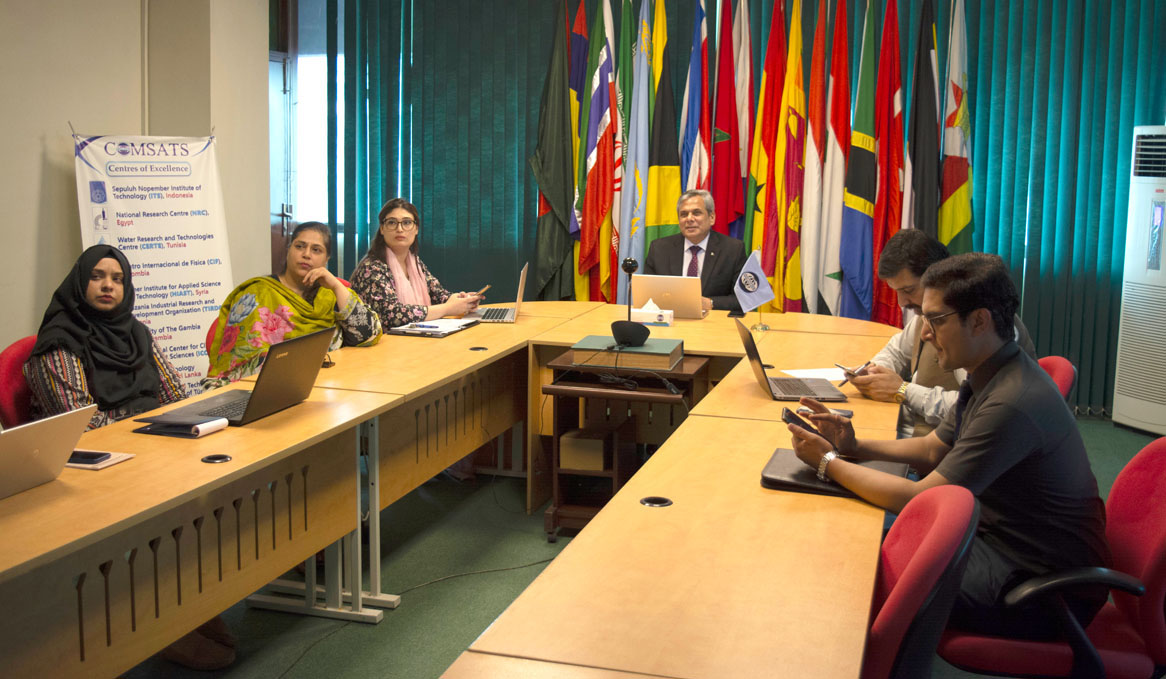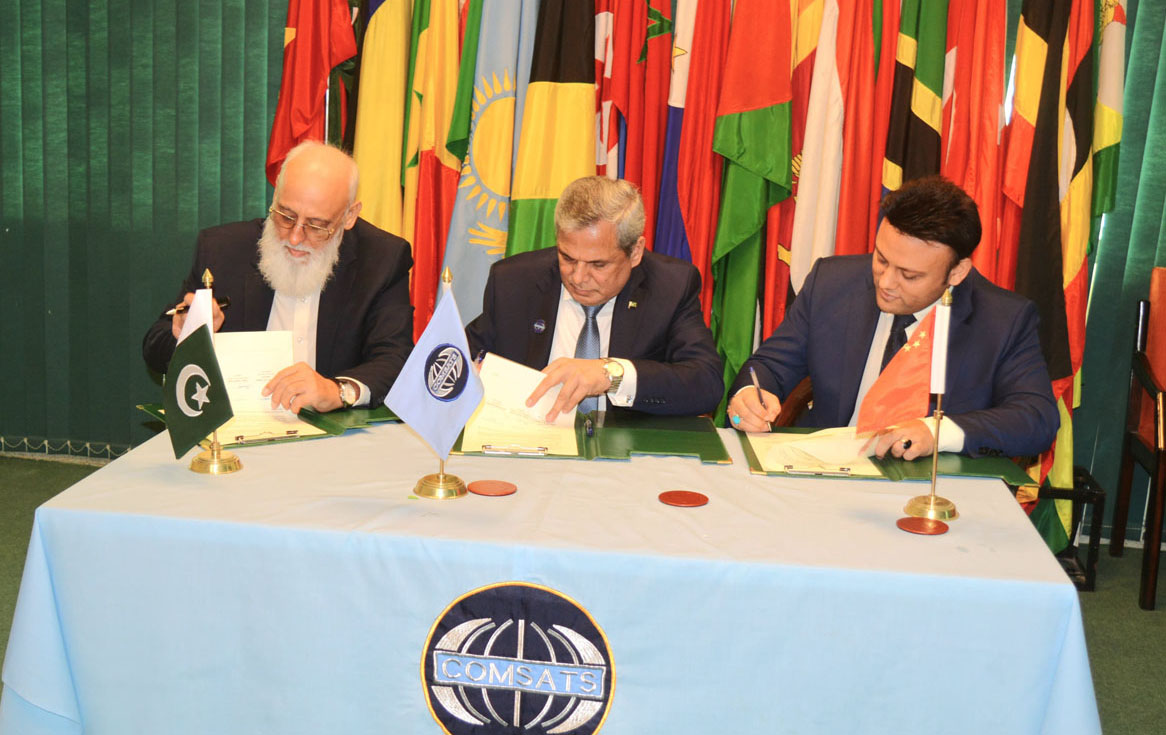The Commission on Science and Technology for Sustainable Development in the South (COMSATS) organized the Webinar on Advancing Climate Diplomacy in the Global South: The Road to COP28 on 22nd June 2023, to highlight the importance of climate diplomacy and promote the cause of South-South Cooperation. Held at COMSATS Secretariat in Islamabad, the event held in hybrid format had a gathering of about 50 persons, including officials from UN agencies, government bodies, R&D institutions, civil society as well as academia.
The event included some insightful presentations and speeches on its theme. These were: ‘Opportunities and Strengths of the Global South in Advancing Climate Action’ by Prof. CAO Jinghua, Executive Director, ANSO Secretariat, China; ‘Climate Diplomacy and its Significance in the Global Climate Governance’ by Prof. Dr. Enrique Forero, Chair of the Regional Focal Point for Latin America and the Caribbean of the International Science Council (ISC), Colombia; ‘Successful Climate Diplomacy Efforts of FAO for the Global South’ by Dr. Zitouni Ould-Dada, Deputy Director, Office of Climate Change, Biodiversity and Environment, FAO, Italy; ‘Key Expectation and Priorities of the Global South for COP28’ by Dr. Sohail Malik, Technical Team Lead, Climate Resourcing Coordination Centre (CRCC), Pakistan; and ‘Non-Traditional Partnership for effective Climate diplomacy’ by Dr. Aneel Salman Chair Economic Security Islamabad Policy Research Institute (IPRI) Islamabad, Pakistan.
Executive Director COMSATS, Ambassador Dr. Mohammad Nafees Zakaria, welcomed the experts and participants for honoring the event in his welcome remarks “Capitalizing on the strengths and opportunities can empower the Global South to play a crucial role in advancing climate action, shaping global climate policy, and contributing to a sustainable and resilient future for all”, noted the Executive Director COMSATS, Ambassador Dr. Mohammad Nafees Zakaria, during the webinar on Advancing Climate Diplomacy in the Global South: The Road to COP28, on June 22, 2023.
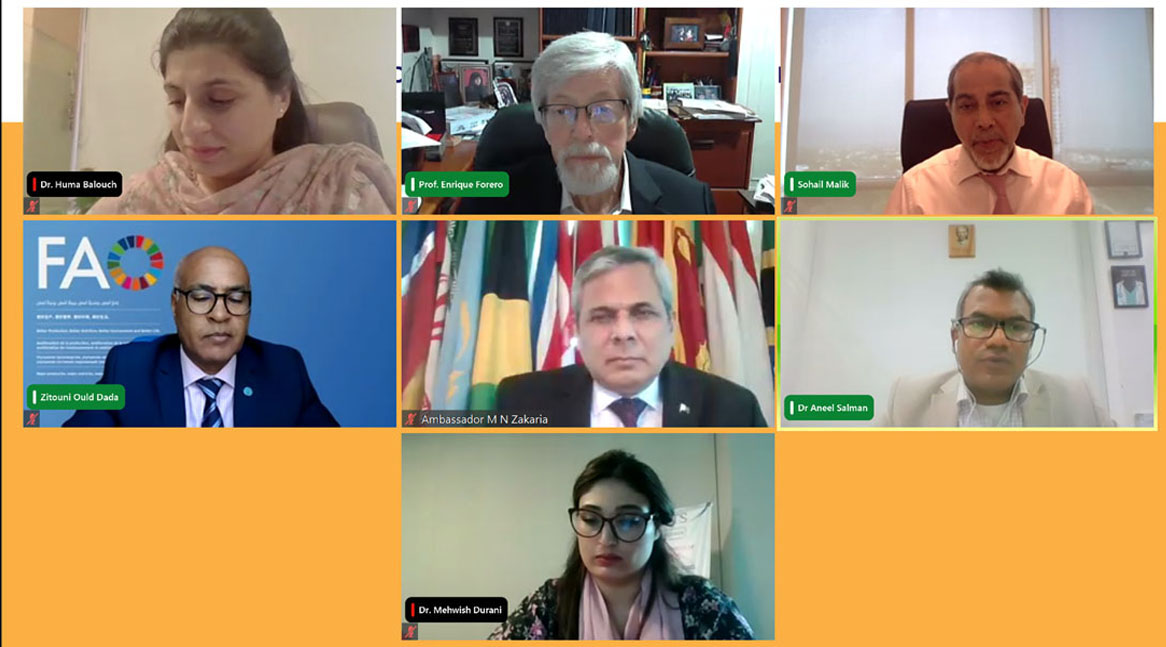
Ambassador Dr. Zakaria opined that while one can’t fight the nature no matter how powerful a country may be but efforts based on recurring experience helped devise ways to help prepare lessen the impact and mitigate by bringing about solutions manifested in scientific, political, social and cultural measures. He noted that the developing countries possess strengths and capabilities to address the challenge. We have resources to develop renewable energy in the larger context of addressing the factors impacting environment and causing climate change. Investment in R&D to achieve indigenous solutions through exchange of expertise and sharing of resources and in the development of requisite infrastructure and technology is the way forward, he added.
Prof. CAO Jinghua, Executive Director, ANSO Secretariat considered the emerging South as the growing center of economic growth offering enormous potential for the developing countries to learn from each other’s experiences and best practices to address global climate challenges. The developing countries have assumed a greater role in the global development landscape, he added. Prof. CAO mentioned that China is committed to achieve Carbon neutrality by 2060. He quoted international bureau of renewable energy; China is no. 1 in hydropower generation and China is contributing 48% of global renewable energy, 45 % of solar and 50 % of wind energy.
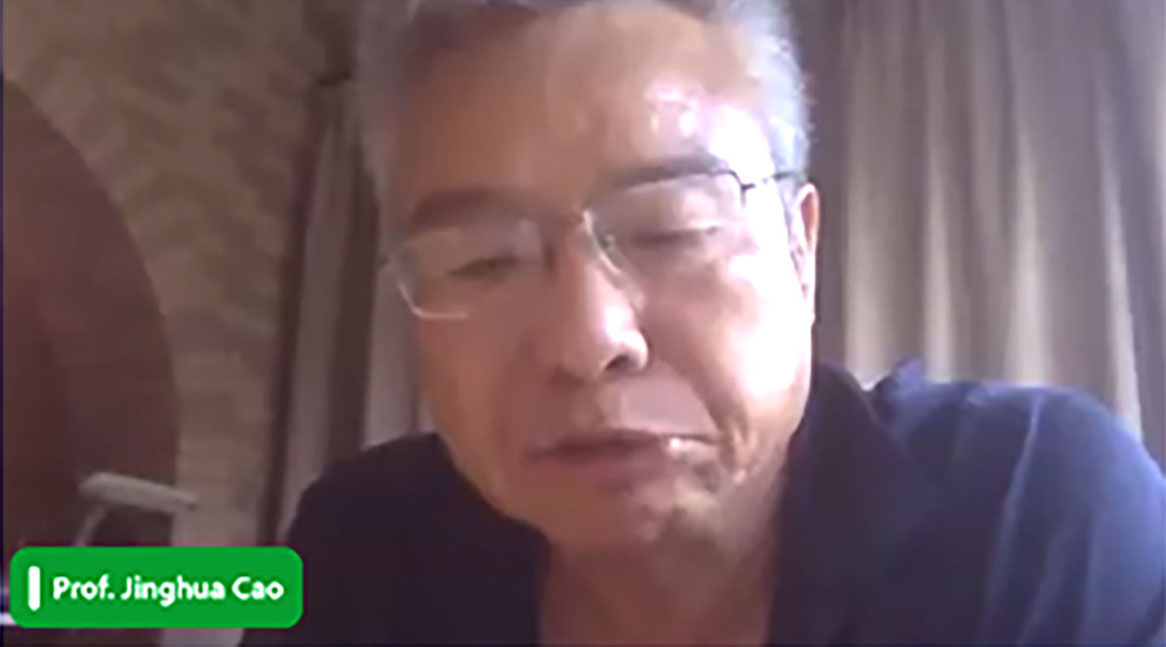
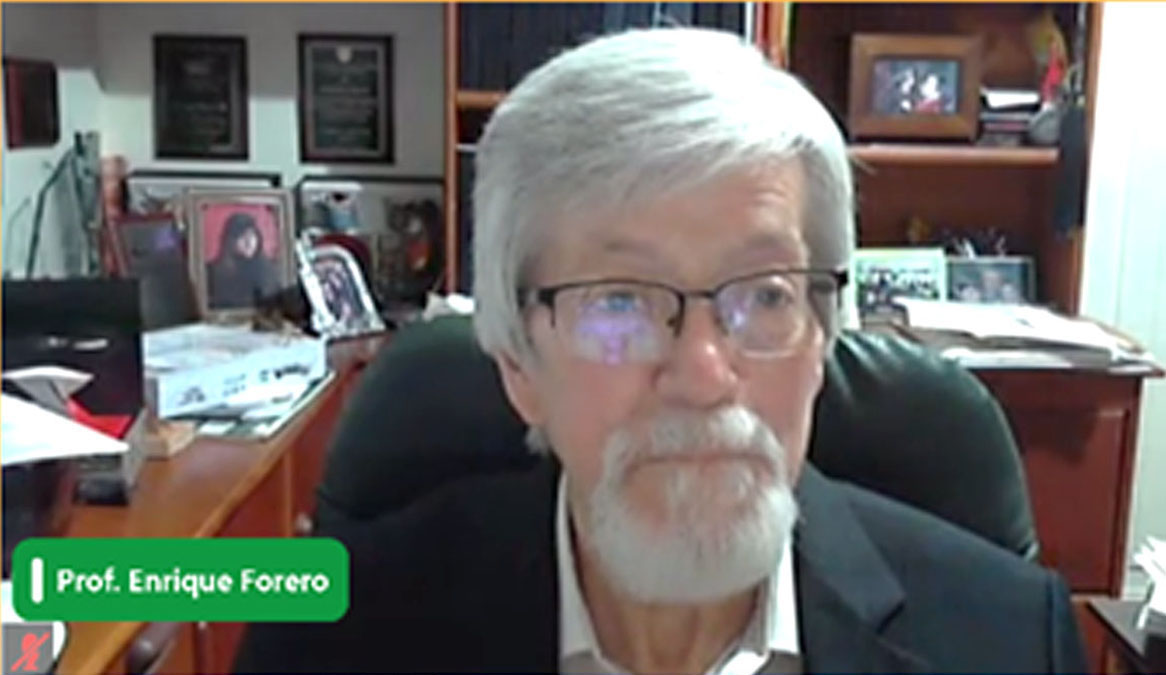
Prof. Forero from Colombia shared his views as in the era of contemporary sciences global community is facing challenges of complexity, climate crises and geo-political realignment and aftermath of covid-19. In his talk, Prof. Forero expressed that the Global South is home to vast forest ecosystems and rich biodiversity. Protecting and restoring these forests not only contributes to carbon sequestration but also helps preserve invaluable habitats and species. He opined that El Nino and La Nina events are triggered by warm temperature which will hit hard South American and Pacific regions. The fast track advancement in climate devastation is uncontrollable and in next decade it will be difficult for the survival of human race.
Dr. Zitouni Ould-Dada stressed that the Global South has a unique opportunity to leverage South-South cooperation for climate action. By collaborating with fellow developing countries, they can share knowledge, technology, and financial resources to enhance their climate resilience and mitigation efforts. South-South cooperation allows for tailored solutions that consider specific local contexts and challenges, fostering ownership and empowerment among participating countries. He also mentioned that peace and conflict of the region is also associated with climate change we need to address these issue with diplomacy and international cooperation. Dr. Ould-Dada added that we must utilize indigenous capacity to address the local issues.
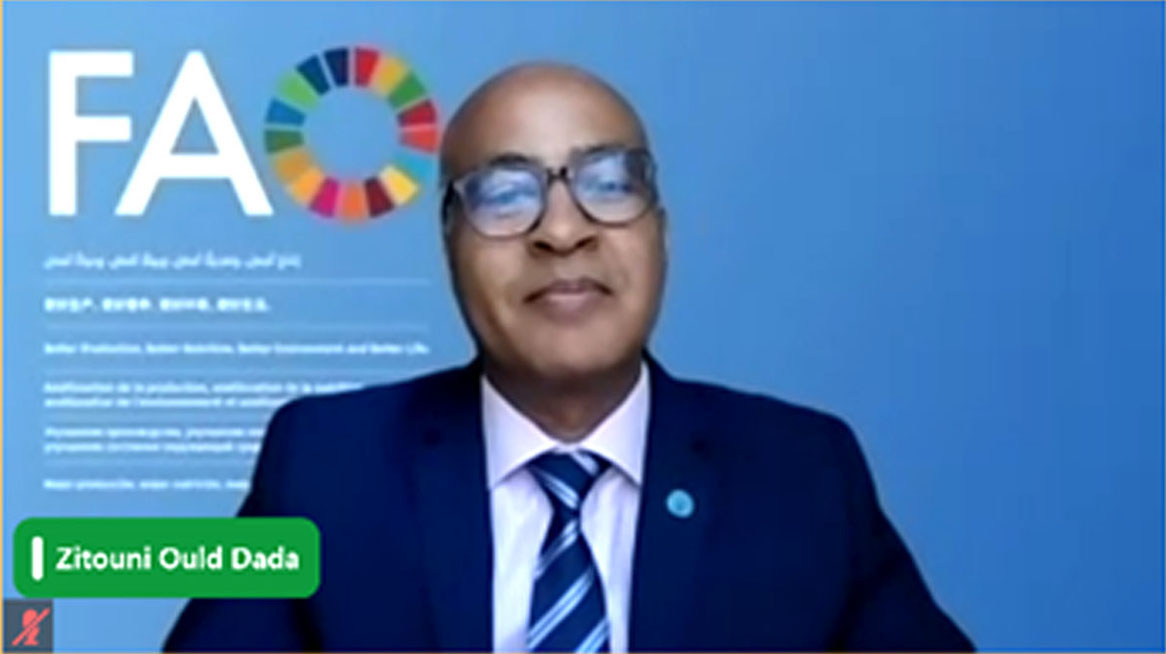
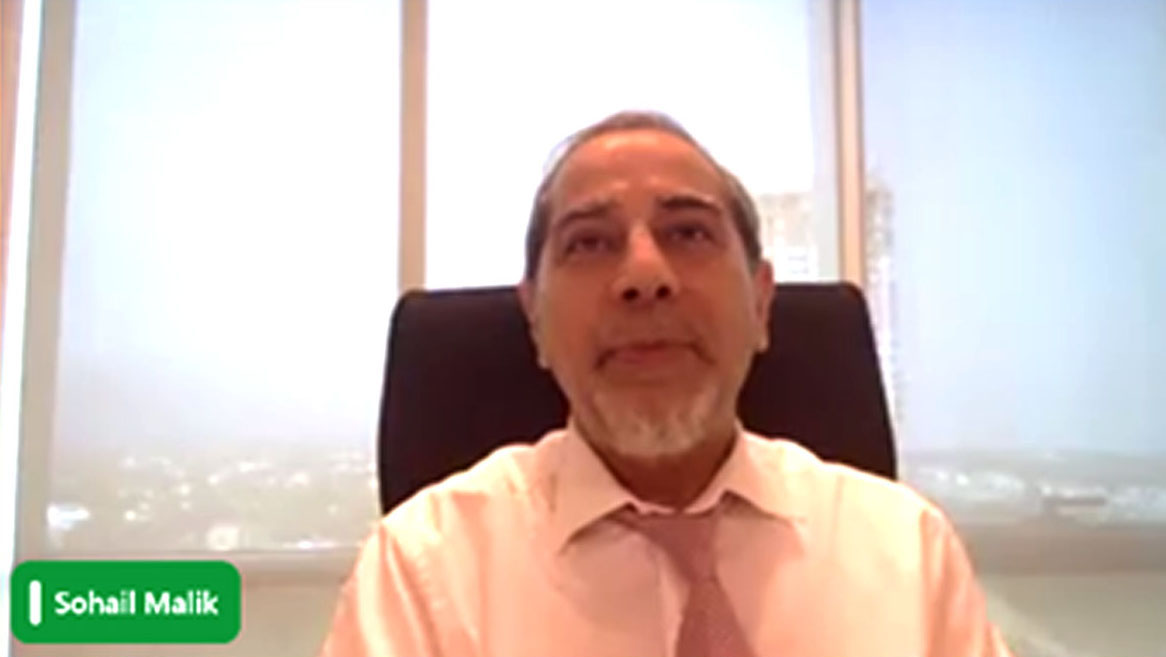
During the webinar, Dr. Sohail Malik, Technical Team Lead, Climate Resourcing Coordination Centre (CRCC), Pakistan, discussed the key outcomes of the COP27 and shed light upon the anticipated outcomes of COP28. Dr. Malik stated that several developing countries possess valuable knowledge and practices in adaptation measures, such as water management, drought-resistant agriculture, and community-based disaster risk reduction. Sharing these experiences and collaborating on adaptation strategies can benefit not only the Global South but also other regions facing similar challenges.
Dr. Aneel Salman considered non-traditional partnership – engaging with leaders at sub-national level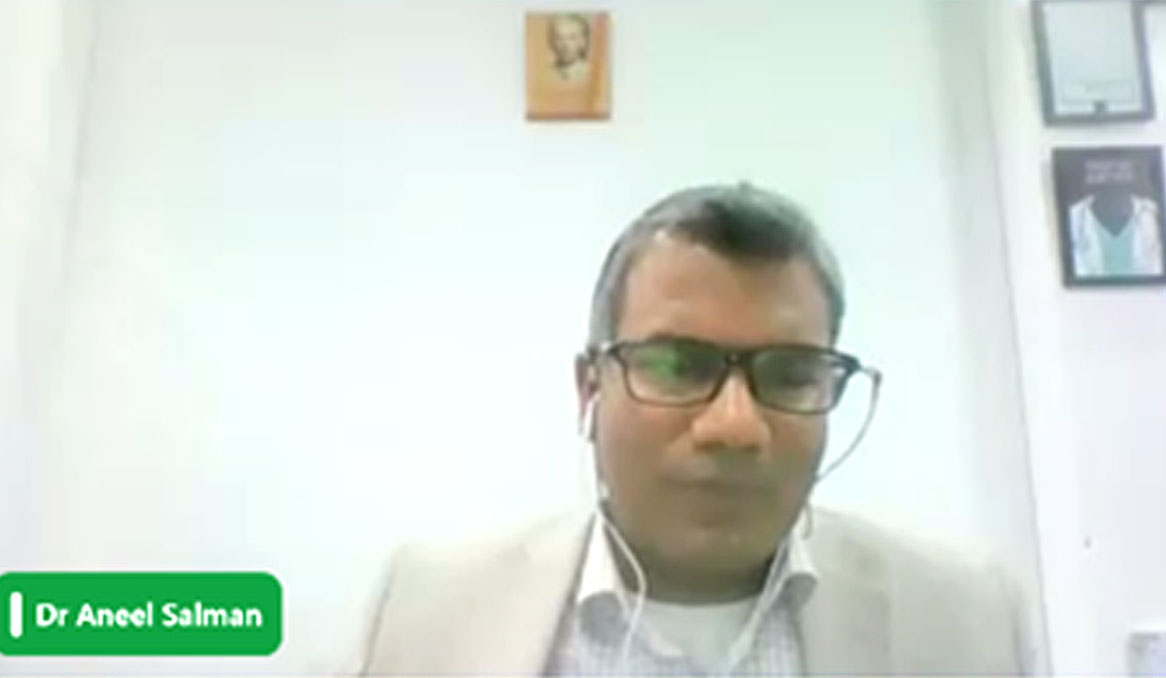 – cities level as most viable solution to immediately lower emissions and increase resilience against climate change. Dr. Salman noted the nine pre-requisites, which include: partnerships, leadership, crisp goals, funding sources and tracking, management, governance and policies, political and social impacts, and identification of the problem structure, will act as a catalyst for Global negotiations for climate diplomacy and sustainability.
– cities level as most viable solution to immediately lower emissions and increase resilience against climate change. Dr. Salman noted the nine pre-requisites, which include: partnerships, leadership, crisp goals, funding sources and tracking, management, governance and policies, political and social impacts, and identification of the problem structure, will act as a catalyst for Global negotiations for climate diplomacy and sustainability.
Panel discussion revolved around the following topics i.e. international cooperation, indigenous capacity enhancement, climate finance, food security, nature based solutions, south-south cooperation and emission reduction. Panelists of the webinar shared success stories and case studies of their respective regions.
The event concluded with a resolve to strengthen climate diplomacy and South-South cooperation ties among the developing countries. The speakers urged to develop workable nature-based solutions that are sensitive to the needs of the indigenous people and making concerted efforts to put them into action.

